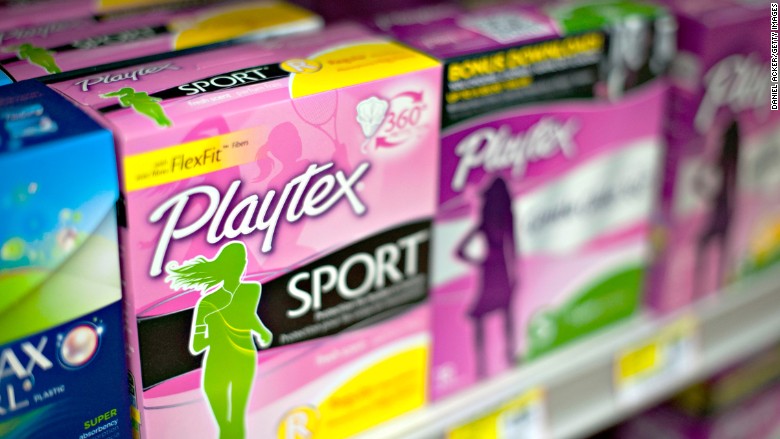
A bill in California calling for lawmakers to exempt tampons and sanitary pads from the state sales tax got a big endorsement this week from the board that administers the state's sales taxes.
A few other states -- Utah, Virginia and New York -- have introduced similar bills.
The issue of the "tampon tax" has gained prominence over the past year. Like groceries, a necessity of life that most states exempt from sales tax, tampons are also a necessity and likewise should be tax free, advocates say.
"[Menstruation] is a condition that happens every month for women. It's not a choice," said Fiona Ma, a CPA who sits on California's Board of Equalization that now supports making tampons tax-free.
Some say the tax unfairly adds to the economic burden of women, who studies suggest may get paid less than men in comparable positions and may be charged higher prices for similar items and services.
Others suspect that taxing tampons is just another example of gender bias. Even President Obama seems to subscribe to that theory. When asked in a recent interview if he felt it was right that tampons are taxed, he said, "I have no idea why states would tax these as luxury items. I suspect it's because men were making the laws when these were passed."
But those arguments ignore the reality of how U.S. state sales tax laws work.
Related: U.S. gender pay gap is getting worse
For starters, there are many "necessities" (including most personal hygiene products) that are subject to state sales taxes in most of the 45 states that impose them.
"We tax toilet paper. We tax soap. We tax most things. I don't think this is a plot to burden women," said Kim Rueben, a state and local public financing senior fellow at the Urban Institute.
That's because sales tax statutes typically just say that all goods are subject to tax, and then list only the exemptions that lawmakers have intentionally carved out for any number of reasons.
A big one is the idea that the poor shouldn't have to pay tax on things they must buy to survive. But exempting an item gives a tax break to everyone else who buys it as well.
In an ideal tax system, policy experts say, everything would be subject to a very low sales tax rate. Then to make sure the poor aren't harmed, they could be given an advance tax credit or rebate to cover their sales tax burden.
Related: How you'll benefit from the new tax deal
Sales taxes are inconsistent: Decisions about what is and isn't subject to state sales taxes are often highly subjective, if not plain "goofy" as Tax Analysts deputy publisher David Brunori put it.
Food may be a necessity, but not all types of food are tax exempt. Unsalted nuts may be, but salted ones might not be. Some states tax candy, while others exempt it. Shampoo is taxable, but it may not be if it fights dandruff.
In California, hot prepared foods are taxable, but cold prepared foods are not, Ma said.
Vivian Ericson, a legislative aide to Cristina Garcia, who introduced the California bill, makes the case that tampons should be treated as a health product. States typically exempt prescription drugs from taxes, but non-prescription health products can sometimes be exempt too, such as walkers, she noted.
But if "necessary health product" is the standard, then one could also argue toilet paper -- and soap and plenty of other items -- also qualify.
Money is always a consideration: California's Board of Equalization estimates that exempting tampons and pads from tax will reduce revenue by $20 million a year. That's a pittance relative to the more than $100 billion collected by the state annually.
But last year the board did not support another bill calling for the state to exempt diapers from tax, Ma said. Why? "It was a big ask."
The bottom line for states: They need a steady, sufficient revenue base. And the default is to tax all goods.
The more items are exempted, the more the state needs to figure out where else to get the money.
"It can be a zero-sum game," Brunori said. To make up for the lost revenue, he explained, "You either end up raising the sale tax or other taxes."
